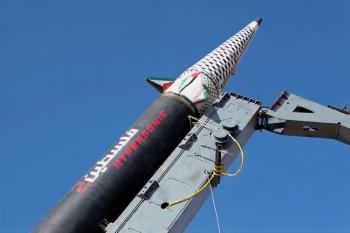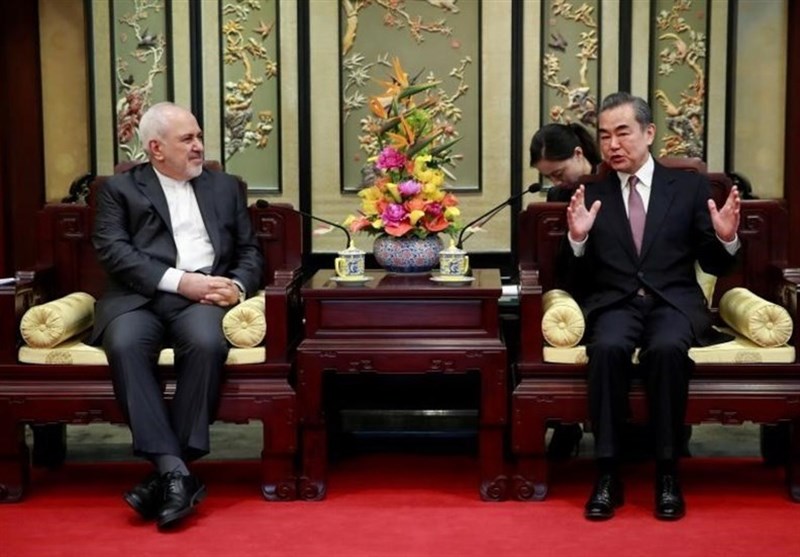Alwaght- Iran's foreign minister emphasized the need for strengthen strategic relations with china while visiting his Chinese counterpart on Tuesday.
Iran's Foreign Minister Mohammad Javad Zarif said that establishing strategic ties shows the two sides’ keenness to reinforce their cooperation.
"We should also hold constant consultations on and this trip serves that aim,” he added.
Zarif further hailed China for supporting Iran’s stance on the international stage.
He also criticized unilateral US sanctions against Iran, calling on the world community to counter unilateralism and back multilateralism.
The Chinese foreign minister Wang Yi, for his part, underscored the necessity of strengthening ties with Iran.
In the current situation, he added, the two countries should exchange views on different issues in addition to maintaining contacts.
The top Chinese diplomat also decried international "bullying practices".
“We need to stand together against unilateralism and bullying practices," Wang said.
Tacitly referring to the US, the Chinese FM said Beijing and Tehran would stand up for their national interests as well as “uphold multilateralism and norms governing international relations."
Zarif responded that the two countries were united in, “our common effort to fight unilateralism and to promote multilateralism" in 2020.
Zarif arrived in Beijing earlier in the day following a stop in the Russian capital, Moscow.
Prior to Zarif’s trip, Chinese Foreign Ministry spokesperson Geng Shuang said Monday the Iran nuclear deal will also be on the agenda of the meeting between Zarif and Wang.
"China would like to work with Iran to ensure the steady development of the China-Iran comprehensive strategic partnership, safeguard the Joint Comprehensive Plan of Action (JCPOA), and uphold peace and stability of the [Persian] Gulf Region in the Middle East,” he said, referring to the nuclear accord by its official name.
Elsewhere in his remarks, Geng described China and Russia — two of the signatories to the JCPOA — as “comprehensive strategic partners of coordination,” adding that that they have been “in close communication and coordination on the Iranian nuclear issue and other major international and regional hotspot issues.”
The JCPOA was signed between Iran and six world states — namely the US, Germany, France, Britain, Russia and China — in 2015. It was also ratified in the form of a UN Security Council resolution.
However, Washington’s unilateral exit in May 2018 and subsequent re-imposition of sanctions against Tehran left the future of the historic agreement in limbo.
In compliance with Articles 26 and 36 of the JCPOA, the Islamic Republic has, since May 2019, gone through four stages in scaling back parts of its commitments in retaliation for the US's pullout and Europe’s failure to protect Iran against the American sanctions.
Iran, Russia: US exit from JCPOA endangers region, world
At a joint press conference after their meeting in Moscow on Monday, Zarif and Lavrov said the United States’ withdrawal from the JCPOA constitutes a serious reversal in the consultation process on the Iran nuclear issue and poses a threat to the security of the Persian Gulf region and the entire world.
Lavrov stressed that Washington has grossly trampled on the rule of international law, urging the US and the EU to either comply with the terms of the nuclear agreement, or recognize it as nonexistent.
"If the Western partners are not ready to adopt a respectful attitude toward international law and the deal reached between us, the JCPOA probably should be recognized as good as dead,” he said.
Zarif, for his part, condemned the US sanctions on Iran, emphasizing that Tehran has scaled back its obligations under the JCPOA, but it still complies with relevant clauses.
He further complained that some European countries, pressured by the US, have stopped implementing their commitments.
"Although the European countries have politically supported the deal, they have, in reality, failed to fulfill their obligations or take any measures against US sanctions. Thus, we call on the European countries to fulfill their obligations under the JCPOA. We share the exactly same stance with Russia on this issue,” the Iranian foreign minister said.
Zarif’s visits to Moscow and Beijing came after the navies of Iran, Russia and China concluded their first-ever trilateral drills in the Indian Ocean and the Gulf of Oman with a focus on anti-piracy and counter-terrorism tactics.



























